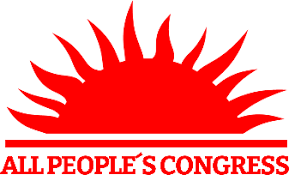By a Concerned Citizen and Observer-Abdulai Sahid Jalloh-Expert in International relations, diplomacy, Humanitarian aid & UN Peacekeeping.
Alpha Amadu Jalloh’s article, “My President Is a Bus Driver With Wings,” is a passionate and provocative commentary. It voices the frustrations of many citizens—a right that democracy must protect. However, it also presents a narrow and pessimistic picture that dismisses the broader context of President Julius Maada Bio’s leadership and undermines the tangible efforts his administration has made to uplift Sierra Leone despite significant constraints.
1. A Vision Rooted in Reform and Human Capital Development
President Bio’s leadership is centered on a core belief: that education is the cornerstone of national transformation. His Free Quality Education (FQE) initiative has already benefited over two million children since 2018—children who, under previous regimes, were left behind. This bold and inclusive policy is not an illusion but a living legacy, ensuring Sierra Leone’s future generations have the tools to break the chains of generational poverty.
Mr. Jalloh paints a bleak picture, yet he fails to recognize this significant stride. The FQE has resulted in the recruitment of thousands of new teachers, expanded access to school materials, and the elimination of school fees for public institutions. These are not cosmetic reforms—they are structural investments in human capital that will bear fruit for decades.
2. A Nation Burdened by Global and Historical Challenges
Sierra Leone is not isolated from global realities. The COVID-19 pandemic, economic aftershocks of the Russia-Ukraine war, global inflation, and a climate crisis disproportionately affect nations with developing economies. President Bio did not inherit a utopia; he inherited a country still recovering from civil war, Ebola, corruption, and institutional decay. To reduce these complex, deeply rooted challenges to mere “reckless driving” is unfair and disingenuous.
Unlike some leaders who place blame, President Bio took ownership and made bold decisions to address fiscal management. His administration strengthened the Auditor General’s Office, enhanced public financial reforms, and worked with international institutions such as the IMF, World Bank, and AfDB to stabilize the economy.
3. Combating Corruption and Strengthening Governance
It is important to highlight the work of institutions like the Anti-Corruption Commission (ACC) under President Bio’s government, which has made impressive gains in reclaiming stolen public funds. Transparency International, as well as the MCC scorecard, recorded improved scores in control of corruption under his tenure—achievements that Alpha conveniently omits.
Nepotism and corruption, as alleged, exist in many systems, but President Bio has shown a stronger political will than most of his predecessors to confront them head-on.
4. Tackling Youth and Drug Abuse with Real Policy Actions
Mr. Jalloh’s reference to the KUSH crisis is valid and concerning. But he fails to acknowledge the National Task Force on Drug and Substance Abuse, the Presidential Declaration of a State of Emergency on Drug Abuse, and the increased funding toward rehabilitation and sensitization programs. Addressing addiction is not solved by blame but by sustained community work—which is ongoing under Bio’s direction.
5. Gender, Health, and Infrastructure
President Bio is one of the few African leaders to pass a landmark Gender Equality and Women’s Empowerment Act, setting a 30% minimum quota for women’s representation in governance. This is not extravagance—it is visionary leadership.
Regarding healthcare, Bio’s administration continues to expand primary healthcare access, invest in maternal health, and improve hospital infrastructure in underserved regions. The health challenges are real, but so are the responses.
In infrastructure, hundreds of kilometers of roads have been rehabilitated or newly constructed, connecting rural economies to national markets. These are not “imaginary achievements” but verifiable developments visible to ordinary Sierra Leoneans.
6. The First Lady: Advocacy, Not Arrogance
The First Lady, Fatima Bio, has been unjustly portrayed. Her “Hands Off Our Girls” campaign has gained international recognition from the UN and AU, successfully confronting child marriage, gender-based violence, and rape. Red carpet events and foreign engagements are not symbols of excess but necessary avenues for advocacy, visibility, and resource mobilization for vulnerable populations.
7. The Path Ahead
Sierra Leone’s challenges are real. No one disputes the need for improved service delivery, energy access, or job creation. But President Bio has laid strong policy foundations for future progress. Critics must be fair enough to distinguish between destructive cynicism and constructive criticism.
Instead of metaphorically calling him a reckless bus driver, we should see President Bio as a captain navigating a storm—with limited tools but determined resolve.
Conclusion
Alpha Amadu Jalloh’s article stirs emotions, but a fair appraisal of national leadership requires objectivity, balance, and acknowledgment of progress. The road is long, but under President Julius Maada Bio, Sierra Leone has a fighting chance—anchored in education, gender justice, anti-corruption, and institution-building.
This is not a government of illusions. It is a government doing the hard work of rebuilding a nation from the inside out.













